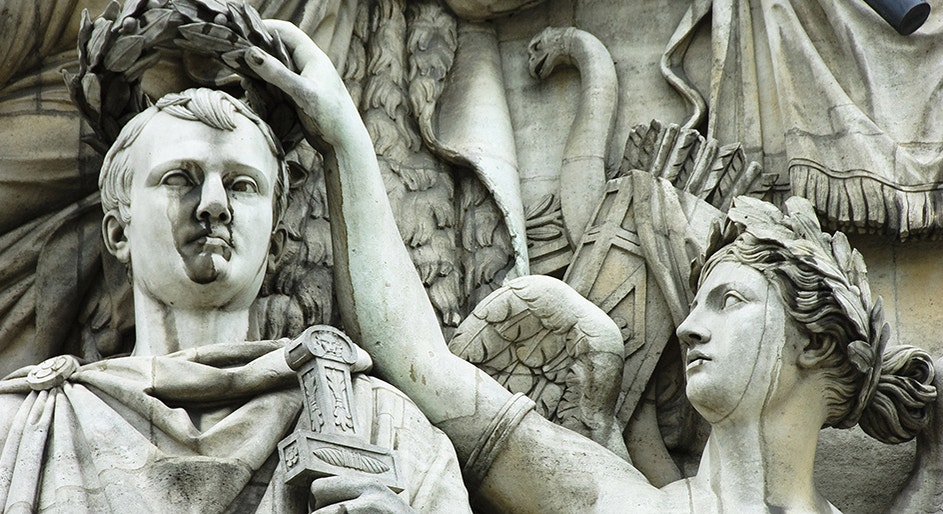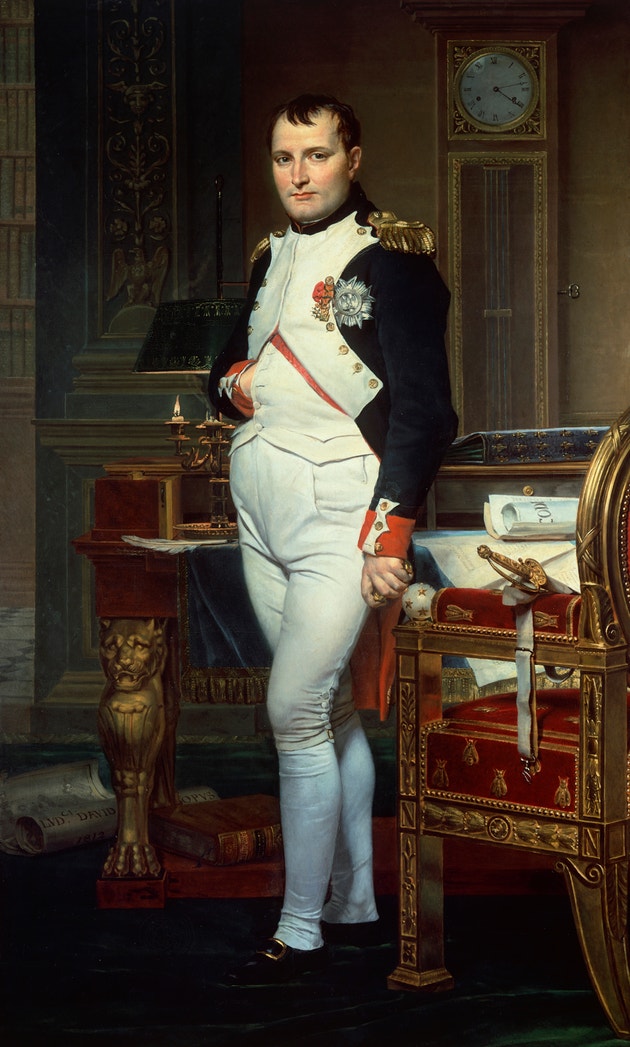Waterloo Turns 200
June 18, 2015

A detail on the Arc de Triomphe (Arch of Triumph) in Paris shows the symbolic crowning of Napoleon I as emperor of France. Napoleon commissioned the arch, one of the city’s most famous landmarks, in 1806 as a memorial to his imperial armies. © Shutterstock
Today is the 200th anniversary of one of history’s most important and decisive—and bloody—events, the Battle of Waterloo. The 1815 battle, fought in Belgium just south of Brussels, changed Europe and ended the adventurous career of French Emperor Napoleon I. British, Dutch, and Prussian troops defeated Napoleon and his Grande Armée (Great Army) at Waterloo, and all sides sent representatives to a commemorative ceremony this week.
To mark the anniversary, Prince Charles of the United Kingdom dedicated a new memorial at Hougoumont farm, scene of a bloody British stand against French forces during the battle. And, despite strident French objections (France did lose the battle and their empire), Belgium issued a 2.50-euro commemorative coin. Why €2.50? Well, because Belgium—which caved to French demands earlier in 2015 not to issue a €2 anniversary coin—found a European Union loophole allowing “odd denomination” coins to be minted despite other EU members’ objections. The coins can only be spent within Belgium. (Not that the towns of northern France would accept them anyway. Well, maybe they would, but grudgingly. Read on for the quick history lesson.)
Napoleon came to power in France as first consul in 1799 on the heels of the French Revolution. Republican France—having decapitated its royalty—made the rest of Europe’s ruling elite quite nervous. The military prowess of Napoleon’s Grande Armée made them downright scared. The kings of Europe’s other great powers—namely Austria, Great Britain, Prussia, Russia, and Sweden—got together to squash this “scourge” of the Continent.

Napoleon I posed in his study for French painter Jacques-Louis David in 1812, above. David served as the court painter to the French emperor. (Samuel H. Kress Collection, (c) 1997 Board of Trustees, National Gallery of Art, Washington, D.C.)
In response, the French defeated Austria in 1801 and made peace with the newly formed United Kingdom in 1802. Egos and the lust for commerce quickly killed the calm, however, and Napoleon (now an emperor) returned to the battlefield. Beginning in 1805, he repeatedly and soundly thrashed the Austrian, Prussian, and Russian armies thrust against him. France gradually overextended its own armies, however, and, after a disastrous invasion of Russia in 1812, the European powers found the Grande Armée suddenly vulnerable. A terrible defeat at Leipzig, Germany, in 1813 led to Napoleon’s downfall and abdication in the spring of 1814. He returned, of course, and—having scraped together one last army—narrowly missed victory at Waterloo in 1815. The legendary leader then went into exile on the South Atlantic island of St. Helena, where he died of stomach cancer in 1821.
What will €2.50 buy you at Waterloo? A bag of frites (pronounced freet—French fries) with mayo, or a coffee at the Wellington Café. Your choice.
Other World Book articles:


